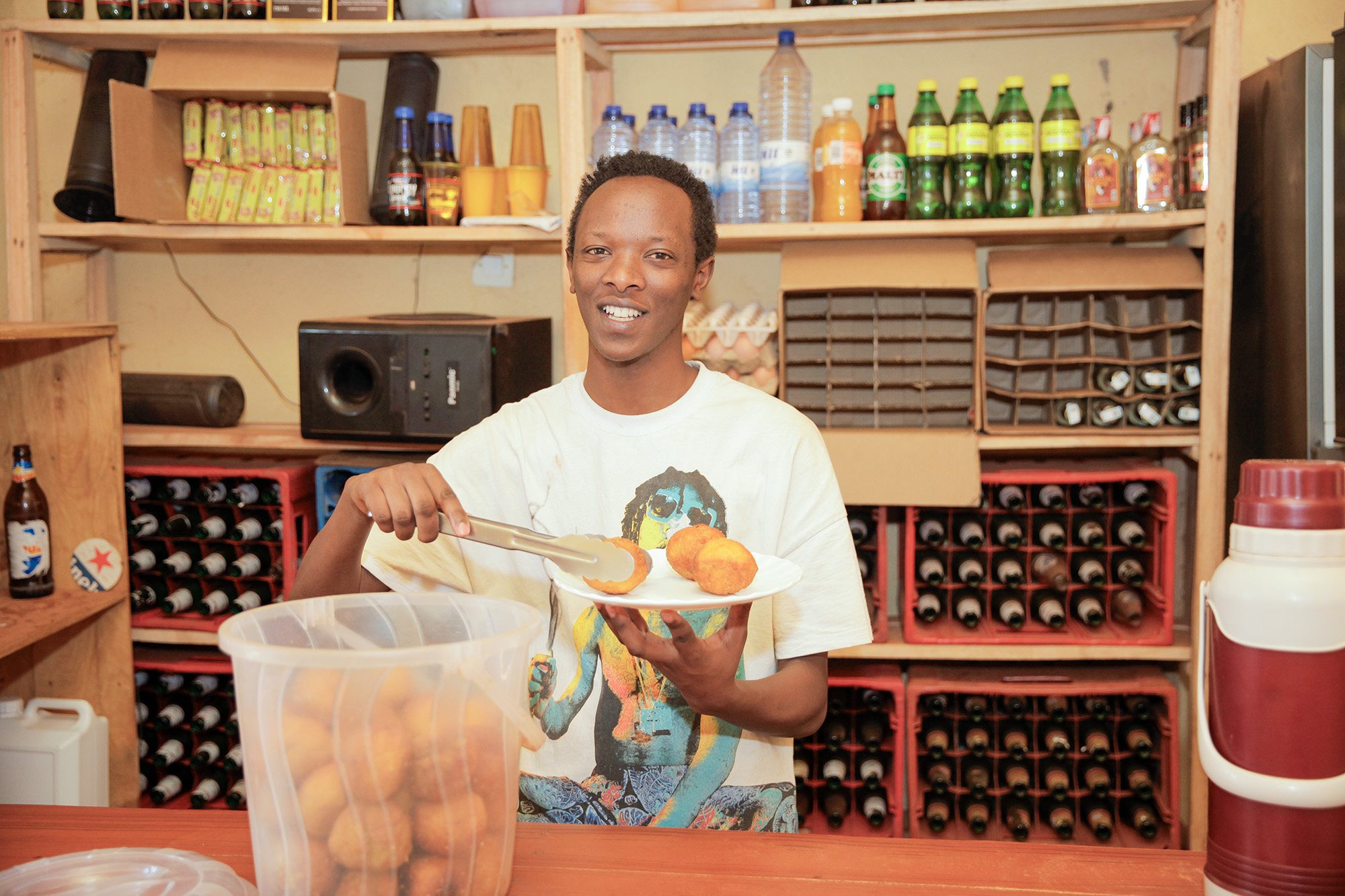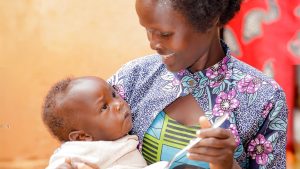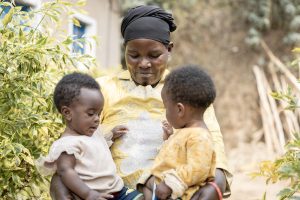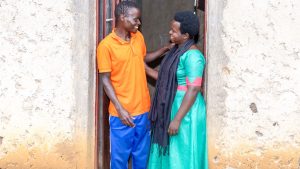Umaraza Claude’s story began in 2012 when he fled the conflict in Congo with his family at the young age of 10. Together with his sister and parents, he started a new life as a refugee in Mugombwa Refugee Camp, where resources were scarce and employment opportunities were limited. Despite the hardships, Umaraza was able to attend school with the support of the Government of Rwanda and its partners, which he says he loved.
After graduating from secondary school, Umaraza found himself unemployed for a year, relying on the camp’s management support to get by. His situation was not unique, as many young refugees in the camp struggled with joblessness and limited prospects.
To address this issue, CARE in partnership with AEE under the FREE project introduced TVET (Technical and Vocational Education and Training) courses in the camp and the surrounding area. They then identified 57 refugees and youth from the host community to support with TVET enrollment, covering their school fees, uniforms, meals, and transportation.
Umaraza was one of the youth selected for this program. He enrolled in a 6-month culinary arts and business management training, which provided him with the skills and knowledge to start his own canteen business. Additionally, the project supported him with 3 months’ worth of rent money for his business to get his venture off the ground.
Umaraza used the training and funding to set up his canteen in a commercial center near the refugee camp, where he hoped to attract more customers.
“The beginning was not easy because I lacked experience and there were other similar businesses in the area,” he recalls. “However, thanks to the skills I got from the project, I was able to strategize and overcome the challenges, with the continued support I got from the project.”
In March 2024, he took a leap forward and started his business with startup capital of 180,000 Rwandan Francs by stocking simple food items for consumption. As he got started, he was doing all the work himself: preparing the food, welcoming and serving his clients, and so on. Despite the challenges this presented, he was determined to leverage his culinary skills to overcome unemployment and support his family.
Today, Umaraza’s canteen is thriving, as he confidently affirms that it is valued at more than 1,500,000 FRW compared to the 180,000 FRW he started with. As he saw his business expand, he was able to hire a part-time employee who helps him prepare food for his clients. With that, he is able to register a net monthly profit of 40,000 Rwandan Francs (around $40). He has even been able to invest in livestock, including goats and pigs, valued at not less than 150,000 Rwandan Francs. On top of that, he is able to support his family with their basic needs in addition to the regular support they receive from the camp. “This FREE project is what trained us and helped me to be alert and start thinking about starting a business and getting out of unemployment,” Umaraza said. “They helped us a lot, they helped us get equipment, they helped us pay for our space for three months to get started. Now everything I need I can find within myself thanks to the support they have given us.”





